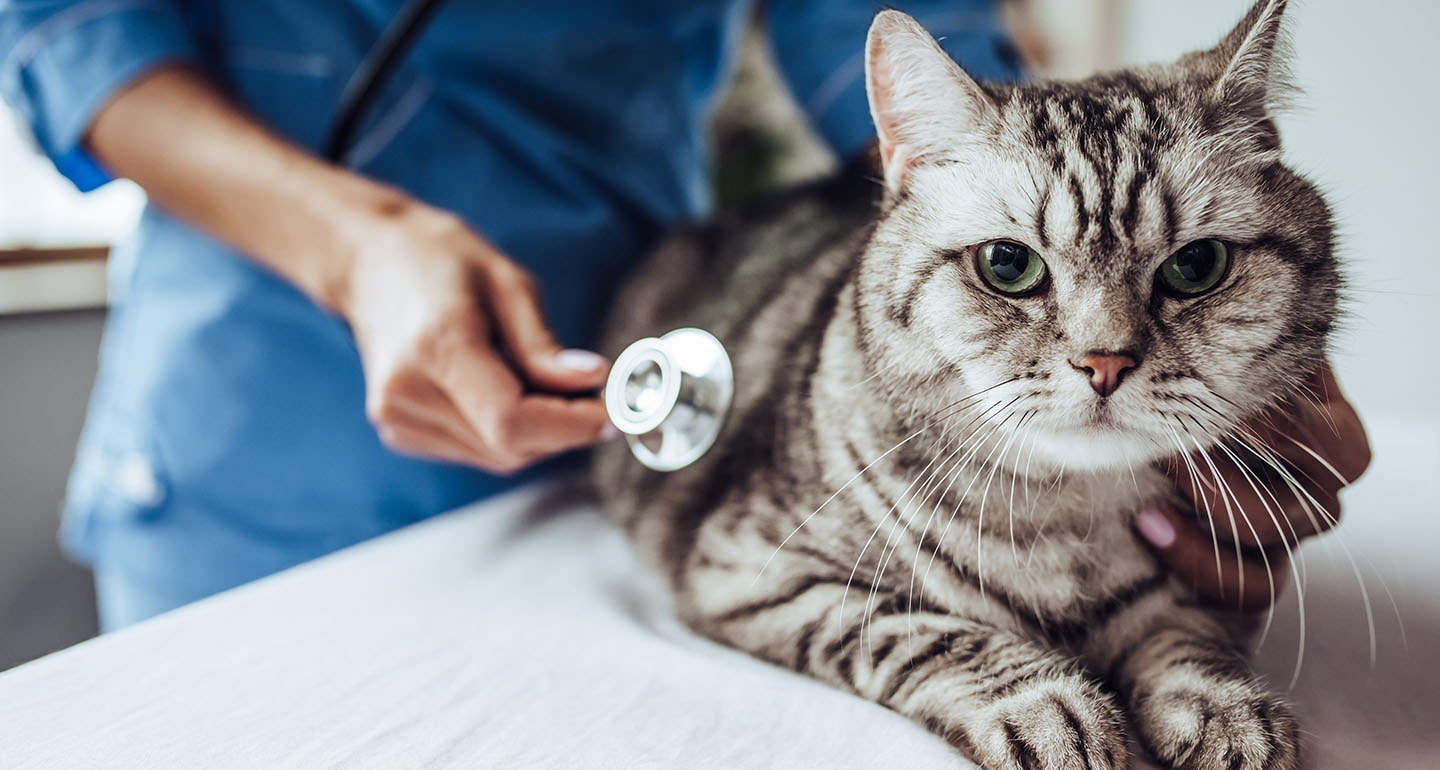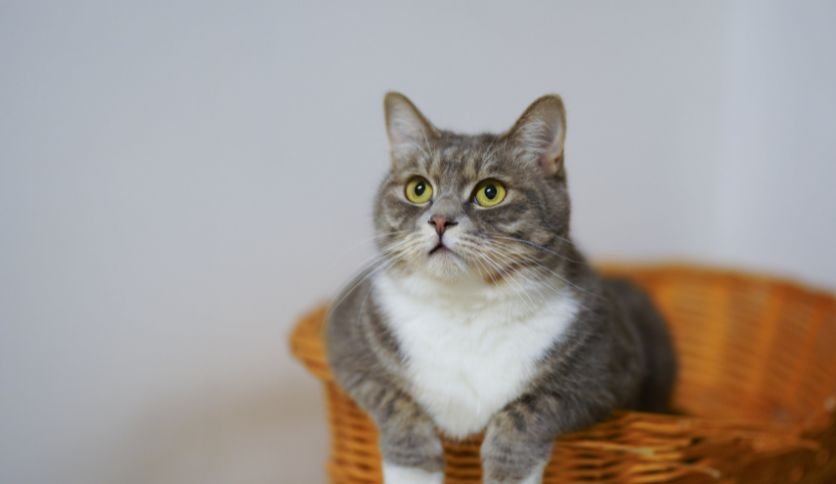Fvrcp vaccine for cats is a combination vaccine that protects against four major feline diseases. It helps prevent feline viral rhinotracheitis, calicivirus, and panleukopenia, as well as Chlamydophila felis infection.
This vaccine is commonly recommended for all cats, including kittens, to provide immunity against these potentially serious and sometimes fatal diseases. Administered via injection, the Fvrcp vaccine stimulates the cat’s immune system to create an immune response, which provides long-lasting protection.
Regular vaccination is essential to keep cats healthy and prevent the spread of these contagious diseases. Veterinarians typically recommend vaccination schedules based on the cat’s age, lifestyle, and risk factors.

Credit: be.chewy.com
Essential Vaccine Explained
The Fvrcp vaccine is essential for cats that protects against several contagious diseases. It stands for feline viral rhinotracheitis, calicivirus, and panleukopenia. Fvrcp is considered a core vaccine recommended for all cats, regardless of their lifestyle or environment.
Feline viral rhinotracheitis is a respiratory disease caused by the herpes virus. It can cause symptoms such as sneezing, nasal congestion, coughing, and eye discharge. Calicivirus, another common respiratory disease, leads to symptoms like oral ulcers, fever, and joint pain.
Panleukopenia, also known as feline distemper, is a highly contagious viral disease that affects the gastrointestinal tract and immune system. It can cause vomiting, diarrhea, dehydration, and even death in severe cases.
The Fvrcp vaccine effectively protects cats against these diseases, reducing the risk of infection and minimizing their severity if contracted. It is typically administered in a series of shots during kittenhood and requires periodic boosters throughout a cat’s life to maintain immunity.
Components Of Fvrcp
The Fvrcp vaccine for cats is a crucial preventive measure to protect against three key viral diseases: Feline Viral Rhinotracheitis, Calicivirus, and Panleukopenia. Understanding the components of the Fvrcp vaccine is essential in recognizing its benefits to feline health.
Feline Viral Rhinotracheitis (FVR) is a highly contagious respiratory infection caused by the feline herpesvirus-1. It primarily affects the upper respiratory system, causing symptoms such as sneezing, nasal discharge, and conjunctivitis. On the other hand, Calicivirus is another common respiratory virus that can lead to symptoms like oral ulcers, fever, and lameness. Lastly, Panleukopenia is a severe and often fatal disease caused by the feline parvovirus. It attacks the bone marrow, gastrointestinal tract, and immune system.
The Fvrcp vaccine contains components to protect cats against all three of these viral diseases. It stimulates the cat’s immune response to develop immunity, preventing severe symptoms and potentially saving their lives. Vaccination is a vital part of responsible pet ownership, ensuring the health and well-being of our feline companions.
Administering The Vaccine
Appropriate age for the first dose: The Fvrcp vaccine, also known as the feline distemper vaccine, is important for your cat’s health. It protects against several dangerous viruses, including feline panleukopenia, rhinotracheitis, and calicivirus. Administering the vaccine at the appropriate age is crucial to ensure its effectiveness. Kittens can start receiving the Fvrcp vaccine at six to eight weeks old. Vaccinating them at this age helps to build their immune system and protect them from potential diseases. After the initial dose, kittens need regular booster shots to maintain immunity. Giving booster shots every three to four weeks is typically recommended until they reach 16 weeks of age. Adult cats should also be vaccinated regularly as their veterinarian advises to ensure continued immunity. Make sure to consult with a professional to determine the best vaccination schedule for your cat.
Possible Side Effects And Precautions
The Fvrcp vaccine is an important vaccination for cats to protect against several contagious diseases, including feline viral rhinotracheitis, calicivirus, and panleukopenia. While this vaccine is generally safe, there can be some potential side effects and precautions to consider.
Common reactions to the Fvrcp vaccine may include mild fever, lethargy, and soreness at the injection site. These reactions are generally temporary and subside within a few days. However, more severe reactions such as vomiting, diarrhea, or allergic reactions can occur in rare cases. If you notice any concerning symptoms, it is important to consult your vet for further guidance.
To minimize potential risks, it is important to provide your cat with a thorough health check-up before administering the vaccine. Additionally, ensure that your cat is not already sick or experiencing any illness. This will help reduce the chances of any adverse reactions. Lastly, always follow your veterinarian’s recommendations regarding the timing, frequency, and administration of the Fvrcp vaccine to ensure your cat’s optimal health and well-being.
Efficacy And Protection Levels
The Fvrcp vaccine for cats provides high levels of efficacy and protection against common feline diseases, including feline viral rhinotracheitis, calicivirus, and panleukopenia. Vaccination helps prevent the spread of infectious diseases among cats and ensures their overall well-being.
| Efficacy and Protection Levels | |
|---|---|
| Lifespan of Fvrcp immunity | Success rates in feline populations |
| The Fvrcp cat vaccine is highly effective and protects against several common feline diseases. It is designed to prevent the transmission of feline viral rhinotracheitis, calicivirus, and panleukopenia. These diseases can be severe and even fatal, particularly in unvaccinated cats. The Fvrcp vaccine stimulates the cat’s immune system to produce antibodies that fight against these viruses, providing long-lasting immunity. | Studies have shown high success rates in feline populations vaccinated with Fvrcp. The vaccine is vital in preventing outbreaks and reducing the spread of these viruses within communities of cats. It is recommended that cats receive their initial Fvrcp vaccine series as kittens, followed by regular booster shots, to ensure continued protection. Vaccinating cats not only safeguards their health but also contributes to the overall well-being of the feline population. |
Legal And Health Guidelines
Vaccination laws for cats vary by jurisdiction, but it is important to understand the legal requirements in your area. Many states and municipalities have mandatory vaccination laws in place, meaning pet owners are legally obliged to vaccinate their cats. These laws are in place to protect public health and prevent the spread of diseases such as rabies.
In addition to legal requirements, veterinary associations strongly recommend vaccination for cats. These associations, such as the American Veterinary Medical Association (AVMA), issue guidelines for pet owners and veterinarians to ensure the health and well-being of animals. Vaccination is considered a crucial preventative measure for feline infectious diseases, including feline viral rhinotracheitis, calicivirus, and panleukopenia.
Real-world Scenarios
The Fvrcp vaccine is a critical immunization for cats to protect them against viruses such as feline calicivirus and panleukopenia. It is crucial to ensure that cats receive this vaccination to safeguard their overall health and well-being.
Impact On Multi-cat Households
The Fvrcp vaccine is crucial for maintaining the health and well-being of feline companions, especially in multi-cat households. When several cats coexist in the same environment, the chances of disease transmission increase exponentially. Fvrcp, which stands for Feline Viral Rhinotracheitis, Calicivirus, and Panleukopenia, is a combination vaccine that protects cats against these three highly contagious and potentially life-threatening diseases. By administering this vaccine to all cats in a multi-cat setting, the risk of infection can be significantly reduced. This vaccine stimulates the cat’s immune system to defend against these diseases and prevent them from spreading within the household. As a responsible cat owner, I ensure that all cats receive the Fvrcp vaccine as part of their regular vaccination schedule to safeguard their health and minimize the risk of disease transmission among feline companions.
Fvrcp In Shelter Environments
The Fvrcp vaccine is also vital in shelters with numerous cats. Shelters typically have a higher risk of disease outbreaks due to the proximity and resource sharing among cats. Administering the Fvrcp vaccine to all shelter cats is a fundamental preventive measure to protect their health and prevent the spread of contagions. By immunizing the cats against Feline Viral Rhinotracheitis, Calicivirus, and Panleukopenia, shelters can greatly reduce the incidence of these diseases within their facilities. Regular vaccination protocols are typically in place to ensure that all incoming cats are up to date with their vaccines, including Fvrcp. This practice helps maintain a healthy environment for cats awaiting adoption and minimizes the risk of disease transmission to potential adopters’ existing pets.
Alternates And Additions
The Fvrcp vaccine is essential for cats, protecting against multiple diseases like feline viral rhinotracheitis, calicivirus, and panleukopenia. It is important for maintaining your furry companion’s overall health and well-being.
| Alternates and Additions | |
|---|---|
| Vaccine combination options | The Feline Viral Rhinotracheitis, Calicivirus, and Panleukopenia (FVRCP) vaccine protects cats against these common and potentially fatal infections. However, alternate options and additional vaccines can further enhance a cat’s protection. |
| Considering non-core vaccines | Non-core vaccines, such as the feline leukemia virus (FeLV) and feline immunodeficiency virus (FIV) vaccines, should be considered based on a cat’s lifestyle and risk factors. Cats that spend time outdoors, contact other cats, or live in areas with known FeLV or FIV prevalence should receive these vaccines. |
Maintaining Cat Health Post-vaccine
After receiving the Fvrcp vaccine for cats, it is important to provide continuous care and monitor your feline companion’s health. Regularly check for unusual symptoms or behaviors that may indicate a potential issue. Keep an eye out for signs of lethargy, loss of appetite, diarrhea, or vomiting, as these could indicate an adverse reaction or an underlying health problem.
Ensure your cat’s environment is clean and free from potential hazards for optimal health. Provide a balanced and nutritious diet, and ensure they can always access fresh water. Regularly groom your cat to keep their coat clean and minimize the risk of infection. Engage in regular play sessions to keep them mentally stimulated and physically active.
In addition to these lifestyle considerations, it is also important to continue to follow your veterinarian’s recommended vaccination schedule for your cat to maintain their immunity against various diseases.
Frequently Asked Questions For What Is Fvrcp Vaccine For Cats
Do Indoor Cats Need Fvrcp Vaccine?
Yes, indoor cats still need the Fvrcp vaccine to protect against common diseases. Indoor cats can still be exposed to viruses from humans or other animals. Regular vaccination helps prevent the spread of diseases and keeps your cat healthy.
Keep up with your cat’s vaccinations to ensure their well-being.
Is Fvrcp Vaccine The Same As Distemper?
No, the Fvrcp vaccine is not the same as the distemper. Fvrcp is a combination vaccine that protects against multiple diseases, including distemper, while distemper is a specific viral infection affecting dogs and cats.
What Is The 4 In 1 Vaccine For Cats?
The 4 1 vaccine for cats is a combination shot that protects against four common feline diseases: feline viral rhinotracheitis, calicivirus, panleukopenia, and chlamydia. Keeping cats healthy and preventing these contagious illnesses’ spread is essential.
Is The Fvrcp Vaccine A Live Virus?
The Fvrcp vaccine does include live viruses.
Conclusion
The Fvrcp vaccine is a crucial preventative measure for cats, protecting against various deadly diseases. Administered in a series of injections, the vaccine stimulates the cat’s immune system, aiding in the defense against the likes of feline panleukopenia, rhinotracheitis, and calicivirus.
By keeping your furry friends up-to-date on their vaccinations, you can ensure their health and well-being while minimizing the risk of transmission to other feline companions. Stay proactive and consult your veterinarian to determine the appropriate vaccination schedule for your precious pet.

Hello, this is Frank Swanson, the owner, and operator of Pet Info Hut. I created this website as a way to share my love of pets with the world. I have over 7 years of experience working with animals, and I have a passion for helping people care for their pets. I hope that you find my website useful and informative. Thanks for visiting!
